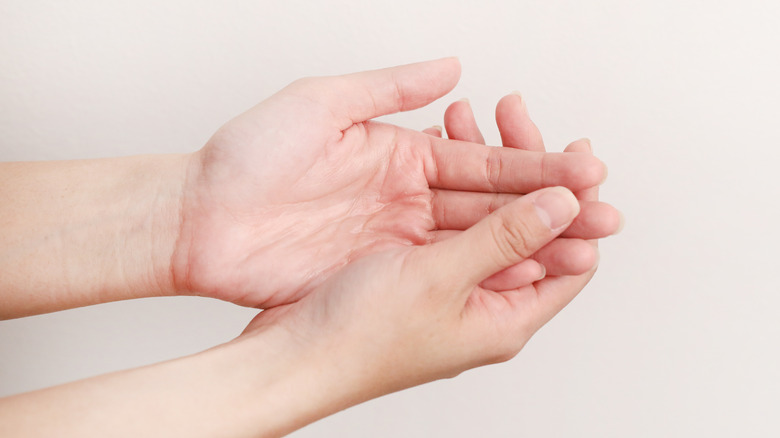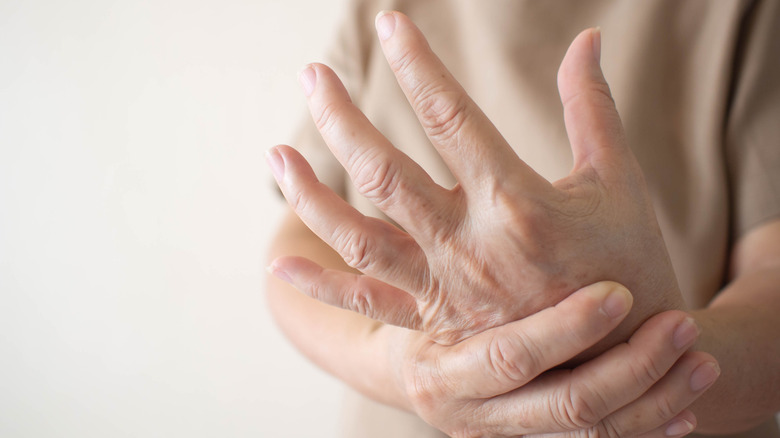The Real Reason Your Finger Is Twitching
Thanks to an increasingly technology-reliant world of smartphones, keyboards, and controllers, finger twitching is becoming an ever prevalent worry for many people. The involuntary movement in one or more of your fingers can be alarming, and even painful at times –- especially if it's persistent.
According to Healthline, the most common cause of your finger twitching is muscle fatigue. If you're an avid gamer, rely heavily on typing in the workplace, or use your smartphone more than you probably should, developing a finger twitch is inevitable. In that case, resting and taking regular breaks is the best treatment (via Medical News Today) and by stretching and massaging the area (via NHS England).
In other cases, finger twitching can be the result of high stress and anxiety, which again can be related to your workload, as well as tiredness and exhaustion (via NHS England). Drinking too much caffeine or alcohol can also cause finger twitching, as can some medications.
However, sometimes finger twitches can be the result of other underlying health conditions.
Finger twitching can be a symptom of more serious conditions
If finger twitches aren't a result of muscle strain or exhaustion, there's a possibility you could have a deficiency in certain minerals like magnesium, potassium, and calcium, as well as a vitamin E deficiency (via the International Board of Credentialing and Continuing Education Standards – IBCCES).
Finger twitching can also be an early symptom of more serious diseases, including Parkinson's and Lou Gehrig's disease according to Healthline. There's also a possibility that this could be a symptom of Hypoparathyroidism, which can come with a variety of other symptoms including muscle aches, twitching, and weakness. Tourette Syndrome is also a factor, which involves involuntary repetitive movements.
If finger twitching is persistent and lasts more than a few weeks, it's recommended that you go to your doctor to check whether this tremor is something more serious than just muscle fatigue or stress. That way, they'll be able to screen for diseases like Parkinson's or Lou Gehrig's and deficiencies in minerals or vitamins and provide you with the appropriate treatment.

